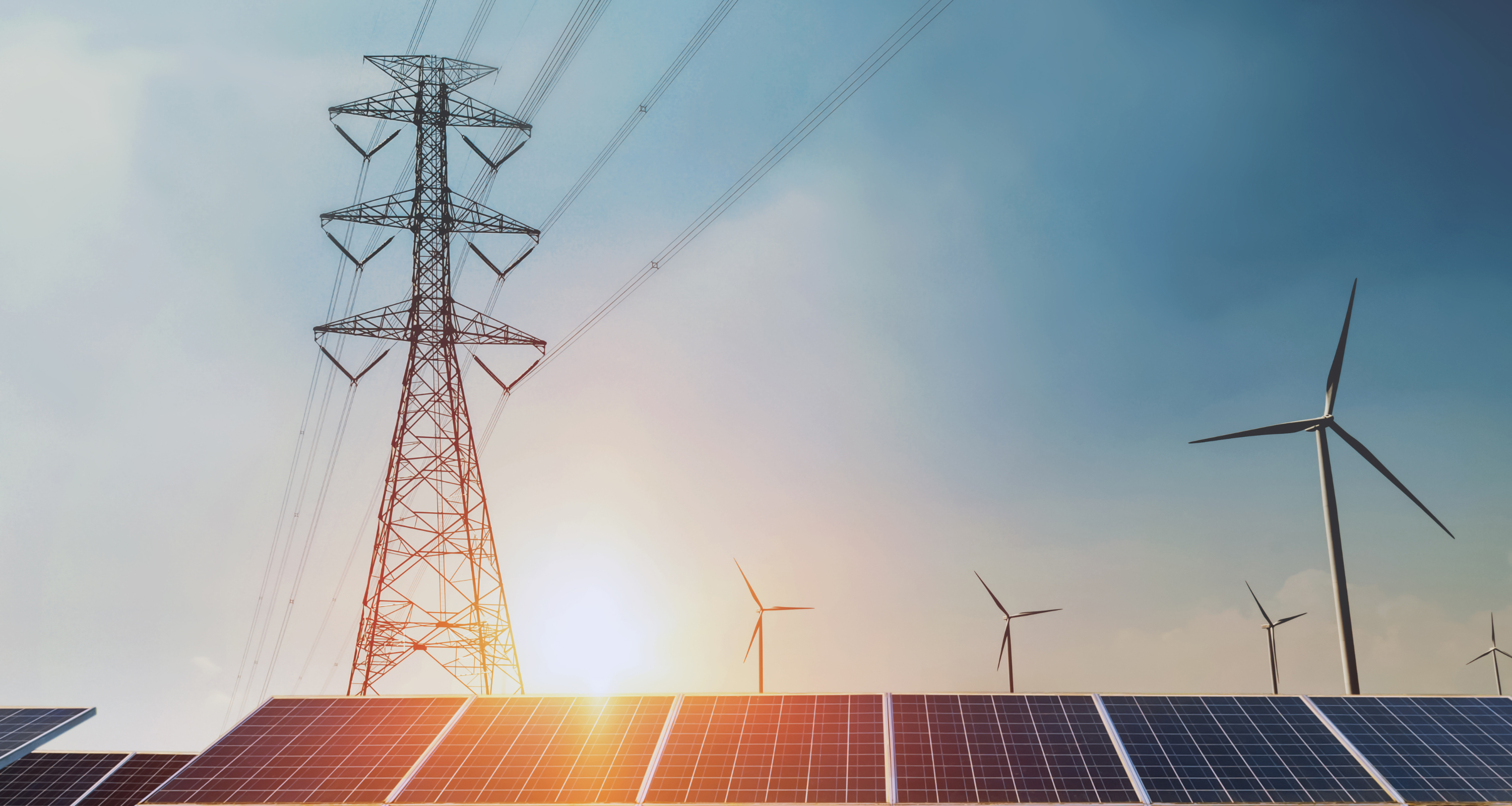- Grid Infrastructure
- Transmission & Power Markets
- Press Releases
New Report Finds Current Transmission Interconnection Process Unworkable and Inefficient, Raising Energy Costs for Customers and Stifling Job Creation
New Interregional Planning Needed to Fix Current Queue Backlogs
WASHINGTON, D.C. — A report released today shows that the current system for interconnecting generators to the transmission grid is unworkable and inefficient, creating a backlog of unbuilt energy projects. These lengthy interconnection queues have resulted in increased electricity costs for consumers, delayed rural economic development and job creation, and an added difficulty for clean energy projects looking to be connected to the nation’s grid.
Sponsored by Americans for a Clean Energy Grid as part of the Macro Grid Initiative, Disconnected: The Need for a New Generator Interconnection Policy examines the current interconnection process and finds that current policies governing queues are excessively costly, slow, and unpredictable. At the end of 2019, 734 gigawatts of proposed generation — 90 percent of which are new wind, solar, and storage projects — were waiting in interconnection queues nationwide.
“Connecting to the transmission grid is like spending four years at the Department of Motor Vehicles, except the costs are much less predictable. FERC’s interconnection policy was created in a different era and it no longer works,” said Rob Gramlich, co-author and Executive Director of Americans for a Clean Energy Grid.
The report finds that the current interconnection backlog is:
- Increasing electricity costs for American homes and businesses by delaying the construction of new energy projects, which are cheaper than existing electricity production.
- Harming rural economic development and job creation as most new energy projects are located in remote, rural
- Delaying or preventing state, utility, and Fortune 500 companies from reaching their decarbonization commitments by backlogging the development of new renewable energy
- Continuing to expose Americans, especially those in marginalized communities, to the harmful impacts of smog, nitrogen oxide, sulfur oxide, fine particulate matter, and carbon dioxide pollution, which are usually associated with older forms of energy
“This report further demonstrates the urgency in which we need to upgrade and reform our transmission system,” says Jay Caspary, co-author and Vice President at Grid Strategies LLC. “We won’t be able to access the benefits of new, clean energy projects by relying on incremental, evolutionary reforms to generator interconnection processes.”
Currently, large transmission upgrades rely on participant funding and network planning, creating a situation in which project developers are charged with paying for transmission upgrades despite the fact that there are broad-based, regional benefits. To address this problem, the report argues that FERC and other planning authorities should discontinue the policy of participant funding for new generation and implement an up-front planning system that expands and improves regional and interregional transmission planning to be proactive, incorporate future generation additions and retirements, and spread costs to all beneficiaries.
“Backlogs in interconnection queues have emerged as a significant challenge to the growth of renewable energy, even as consumer demand increases for low-cost wind and solar projects,” said Gregory Wetstone, President and CEO of the American Council on Renewable Energy (ACORE). “This important new report highlights the shortcomings of current interconnection policies and proposes sensible solutions for substantive reform. The renewable energy growth enabled by these policy changes is essential to efforts to address the climate challenge.”
To read the new report, Disconnected: The Need for a New Generator Interconnection Policy, click here.
Additional Notable Quotes on the Release of the Report:
Amy Farrell, Senior Vice President for Government and Public Affairs, American Clean Power Association (ACP)
“As this report makes clear, the current generation interconnection process is broken, preventing abundant renewable resources from connecting to the grid and providing the reliable, low-cost, clean energy consumers and businesses are demanding. A robust transmission system simply cannot be planned and paid for one interconnection at a time; rather we need a holistic, long-range planning process that optimizes transmission spending to meet economic, reliability, public policy and interconnection goals, and spreads the costs of upgrading the grid to all beneficiaries. ACP looks forward to working with its members, ACEG, other allies and all interested parties to apply this report’s analysis to implement these necessary transmission planning reforms.”
United States Representative Kathy Castor (D-FL), Chair of the House Select Committee on the Climate Crisis
“As we strive to rebuild our economy and protect public health amid the COVID-19 pandemic, we must make it easier for more households in America to access affordable, renewable energy. I commend the Macro Grid Initiative for highlighting important steps we can take to fight the climate crisis and alleviate air pollution, including initiatives to fix backlogs and connect more emissions-free power to the grid as we recommended in our Climate Crisis Action Plan.”
Georgios Papadimitriou, Head of Enel Green Power North America
“We agree with the report’s conclusion that the current interconnection process is obsolete to address today’s electricity generation mix and dynamics and as such requires a major overhaul. As a global renewables developer, new investments in transmission are critical for delivering power from areas where renewable energy is abundant to where the power is ultimately consumed. New transmission investment – especially inter-regional transmission – would significantly benefit rural America by opening up new areas for economic development, while simultaneously benefiting U.S. consumers by increasing the supply of lower cost, clean renewable energy. We urge U.S. policymakers to support a comprehensive, long-range transmission planning process that optimizes new regional and inter-regional transmission investment across North America.
Bill Menner, Executive Director of the Iowa Rural Development Council
“Attracting new private sector investment to rural Iowa is critical to the state’s economic vitality. This report clearly demonstrates that the current process for connecting new wind and solar energy projects to the power grid has room for improvement, as it is inhibiting investment that could provide substantial economic benefits to our communities.”
##
About Macro Grid Initiative:
The Macro Grid Initiative is a joint effort of the American Council on Renewable Energy and Americans for a Clean Energy Grid to promote investment in a 21st century transmission infrastructure that enhances reliability, improves efficiency and delivers more low-cost clean energy. The Initiative works closely with the American Wind Energy Association, the Solar Energy Industries Association, the Advanced Power Alliance and the Clean Grid Alliance to advance our shared goals. To learn more, visit https://acore.org/macro-grid-initiative/. Follow the Macro Grid Initiative on Twitter and LinkedIn.
About Americans for a Clean Energy Grid:
Americans for a Clean Energy Grid (ACEG) is the only non-profit broad-based public interest advocacy coalition focused on the need to expand, integrate, and modernize the North American high-voltage grid. ACEG brings together the diverse support for an expanded and modernized grid from business, labor, consumer and environmental groups, and other transmission supporters to support policy which recognizes the benefits of a robust transmission grid. For more information, please visit cleanenergygrid.org
Media Contacts:
Alex Hobson
Vice President of Communications
American Council on Renewable Energy
hobson@acore.org | 202.777.7584 (o) | 202.594.0706 (c)
Nicolette Santos
Communications Associate
Americans for a Clean Energy Grid
Nicolette@dgardiner.com | 703.717.5501 (o) | 626.862.8464 (c)
Join leaders from across the renewable energy sector.

What will our next 20 years look like? Here’s the truth: they’ll be better with ACORE at the forefront of energy policy.
Shannon Kellogg
Amazon Web Services (AWS)

